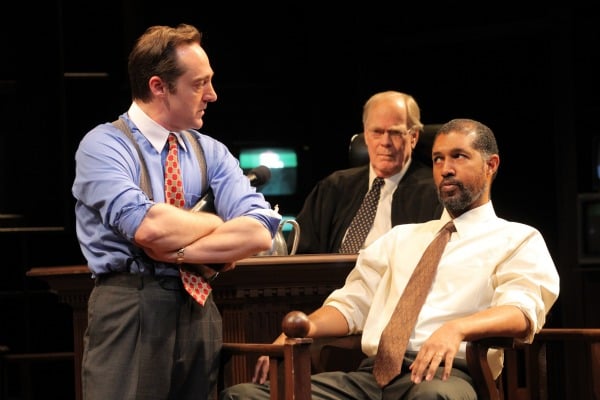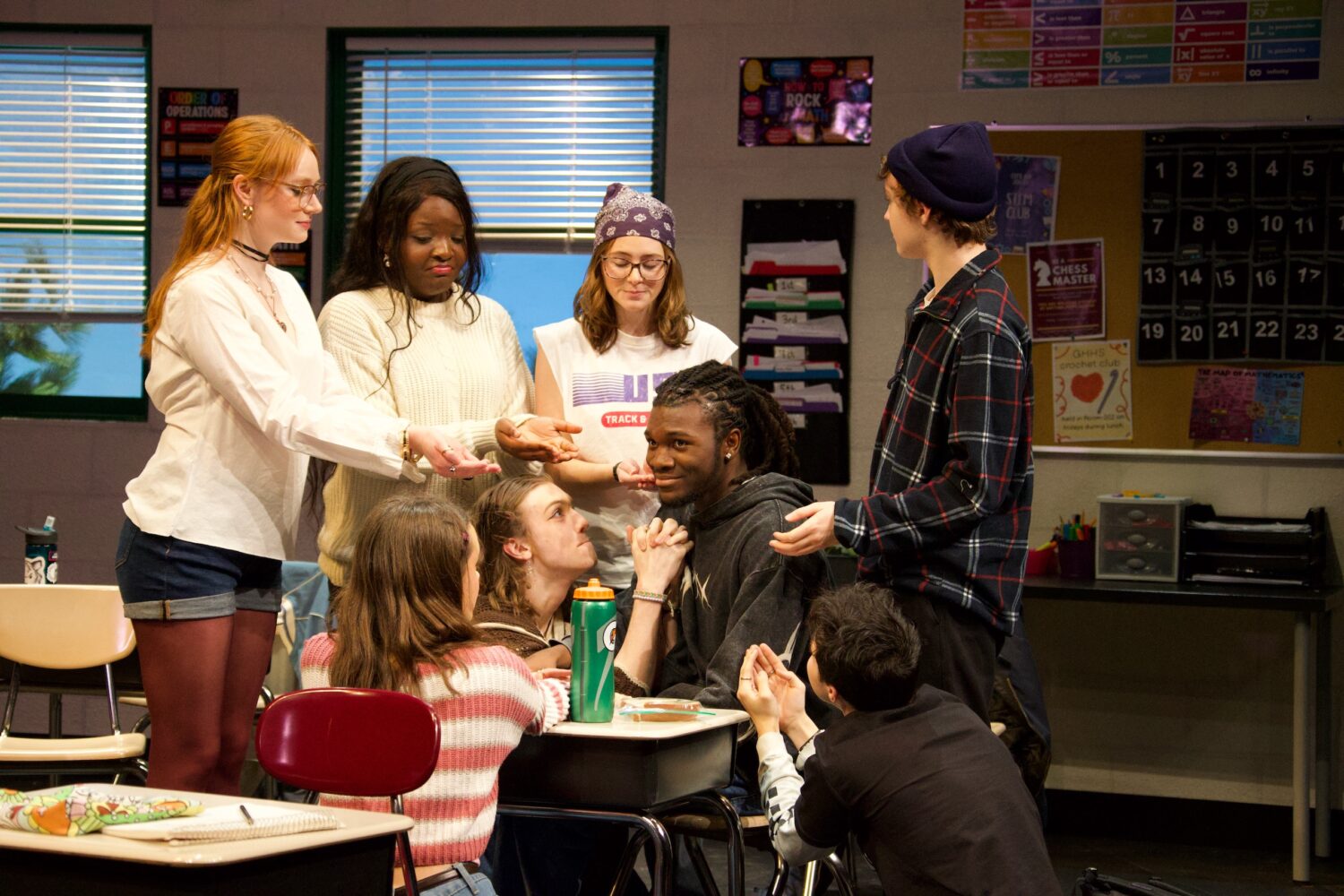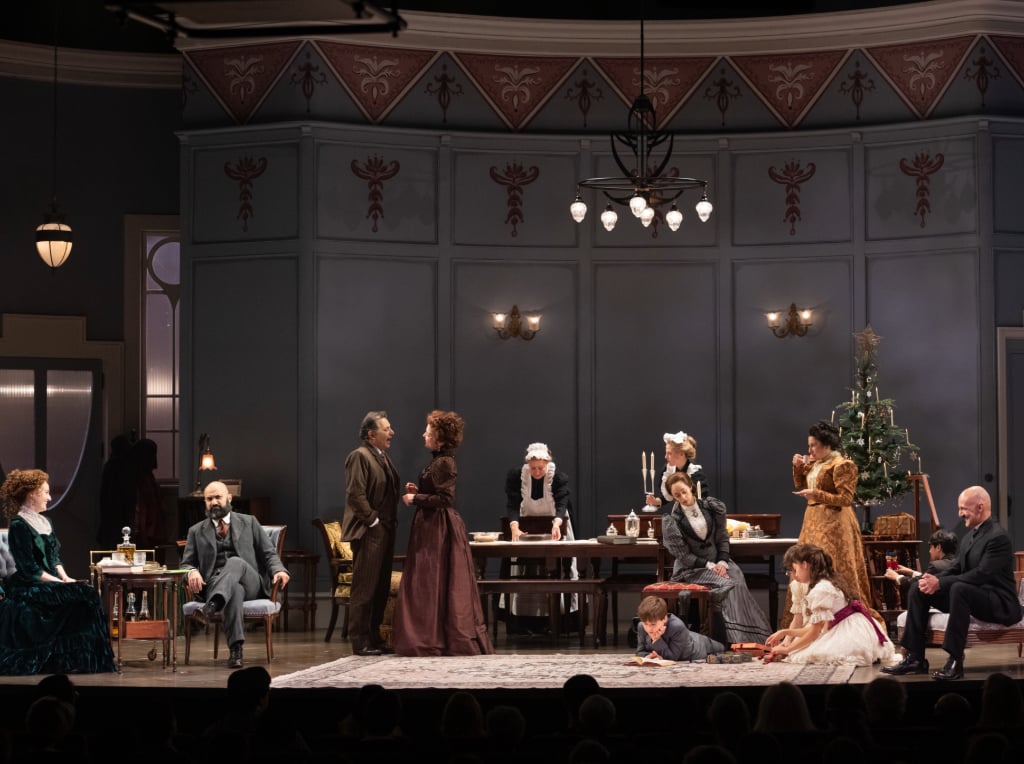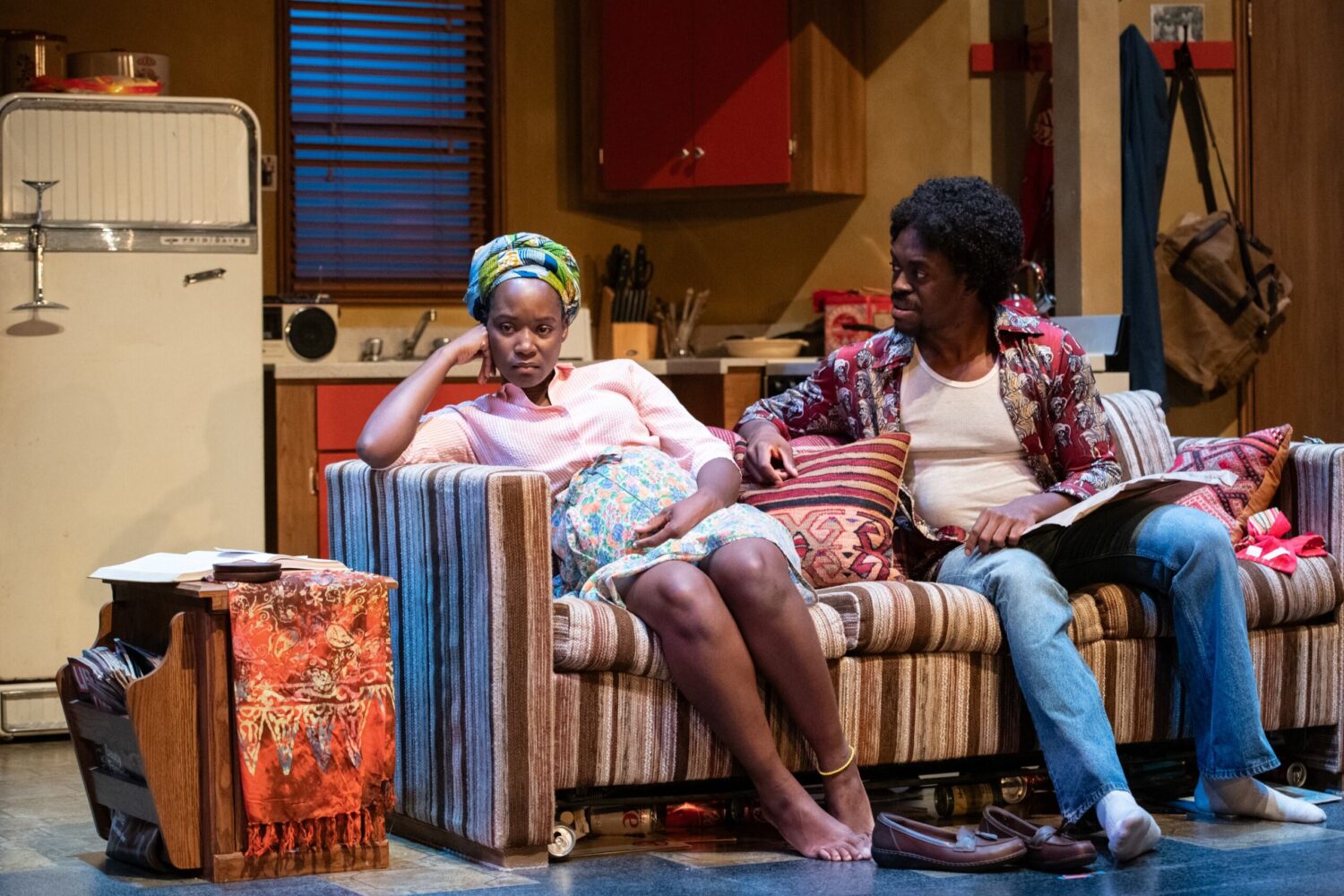** out of four
As the 2010-11 theater season edges toward a close, here are some lessons we’ve learned over the last nine months: First, Tracy Letts is unfairly multitalented. Second, surreal comedies about murdered beauty queens are probably not a good idea, no matter how many years have passed since JonBenét Ramsey was splashed all over the news. And finally, as of this weekend, we have a new nugget of wisdom to bear in mind: Six-hundred-page John Grisham thrillers do not good theater make. Also: Even the mighty Arena Stage, which has delivered outstanding shows all season, isn’t immune to a clunker or two.
“Clunker” might be an exaggeration, but the overall caliber of Arena productions this season, from the gut-wrenching (and Broadway-bound) Who’s Afraid of Virginia Woolf? to the heartbreaking Ruined, has been so high that what might be a merely forgettable production of A Time to Kill from another theater company seems bitterly disappointing here. Rupert Holmes—who won a Tony for his 1985 Broadway musical, Drood, and garnered a nomination for the 2003 play Say Goodnight, Gracie—adapted the Grisham novel, while local-boy-turned-NYC-big-shot Ethan McSweeny directs. Reservations about a new genre of theatrical thrillers aside, how bad can it really be?
The problem doesn’t ultimately lie with Grisham, who’s justifiably a wildly successful writer of legal fiction, or even with Holmes, who did his best distilling a hefty, detailed novel into just over two hours of theater. Nevertheless, viewers are left with a breakneck pace, vaguely sketched plot developments, and characters so thin they’re almost transparent. Instead, we have to blame producer Daryl Roth, who presumably saw dollar signs emanating from the Grisham brand, as well as irresistible name recognition from both the novel and its 1996 movie adaptation. Unlike Holmes and McSweeny, I’ve seen the movie version, and while it isn’t exactly groundbreaking, it’s a solid, emotive, and thoughtful thriller. The unspeakable tragedy that prompts Carl Lee Hailey (played here by Dion Graham) to take justice into his own hands is excellent fodder with which to engage an audience.
Said tragedy, in this adaptation, is told only through a scream and the flickering televisions that punctuate James Noone’s set: a rotating courtroom surrounded by windows, decorative moldings, and old-fashioned analog sets. We never see Tonya Hailey, the ten-year-old whose brutal rape incites her father’s vigilante revenge. Instead, we see her cocky, cartoonish parent wielding an assault rifle, which he carelessly tosses to the town’s sheriff (Chiké Johnson, who stands out despite his limited role) after using it.
Hailey’s unswerving faith in the fact that his crime is completely justifiable becomes one of the most frustrating elements of a play that rarely appears thoughtful. We’re repeatedly told that almost everyone in his position would do the same thing, which might have been true in 1980s Clanton, Mississippi—but I doubt it. For one thing, the criminal-justice system is faultless before Hailey gets his hands on an AK-47. The men who viciously attacked and attempted to murder his daughter are almost immediately arrested, bail is set at an astronomically high level so as to keep them in jail, and all law enforcement officers from the judge (Evan Thompson) to the sleazy, self-seeking prosecutor (Brennan Brown) appear invested in seeing that justice is served. Not to appear unsympathetic to Hailey’s plight, but Graham’s performance is so dull and stereotypical that it’s really hard to understand, let alone support, his motive.
It’s hard to ascertain whether the performances are so flat because this is an extraordinarily plot-driven play (with character development left by the wayside) or whether the actors themselves are to blame. Regardless, the end result is frustrating. Sebastian Arcelus is unconvincing as Hailey’s high-minded attorney, Jake Brigance—he has the requisite Matthew McConaughey hair, but not much else with which to stand out, and an almost-liaison with cub attorney Ellen Roark (Rosie Benton) comes so far out of left field that it’s almost laughable. You can understand why Holmes left nuggets like this in from the book, but without time to explain them or set them in context, they’re baffling. Brigance might be vain, but his instant shift from stolidly loyal husband to wannabe adulterer is such a 180 that it feels ludicrous.
I could go on, but it almost feels ungracious at this point. One thing the production has going for it is that it’s absolutely not boring: Its breakneck pace and rapid-fire plots development make sure of that. With a little more exposition, stronger performances, and a thoughtful approach as to why things happen rather than just how, this could be an enjoyable way to pass a few hours—much like a Grisham novel itself. Instead, it’s a waste of extraordinary resources and talent. But if there’s a lesson to take from it (i.e., please don’t ever try and do this again), at least all that time won’t have been killed in vain.
“A Time to Kill” is at Arena Stage’s Kreeger Theatre through June 19; tickets ($40 and up) are available at Arena Stage’s Web site.
Subscribe to Washingtonian
Follow Washingtonian on Twitter
More>> After Hours Blog | Arts & Events | Happy Hour Finder | Calendar of Events















